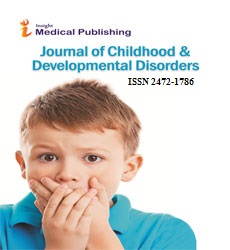Abstract
Why Do We Find it so Hard to Calculate the Burden of Neurodevelopmental Disorders
Context: Neurodevelopmental Disorders (NDDs) comprise a spectrum of prevalent disorders affecting social, communication, activity, attention, motor coordination and literacy and numeracy skills. NDDs are highly heritable, frequently co-occur, predominantly persist throughout life and are commonly associated with adverse psychological and psychosocial outcomes for both the individual and their family. However, these features of NDDs are rarely acknowledged or considered within research (including burden-of-illness studies) or by healthcare and educational professionals.
Review: We summarise up-to-date UK and USA prevalence information and compare the relative co-occurrence rates both among NDDs and between NDDs and other psychiatric and medical conditions. We then catalogue the known psychosocial outcomes for individuals with NDDs, their parents and siblings and their children, including considering the heritability of NDDs. We also discuss population groups where NDDs are currently under-diagnosed and consider cases where NDDs may be mis-diagnosed.
Conclusions & Recommendations: We offer suggestions to advance our knowledge of the burden of NDDs and shape the future research agenda to develop interventions, management plans and policies to address the burden. This is of vital importance to ensure individuals with NDDs and their families receive the best possible care.
Author(s):
Mary Ann Megan Cleaton and Amanda Kirby*
Abstract | Full-Text | PDF
Share this

Google scholar citation report
Citations : 504
Journal of Childhood & Developmental Disorders received 504 citations as per google scholar report
Abstracted/Indexed in
- Google Scholar
- China National Knowledge Infrastructure (CNKI)
- Directory of Research Journal Indexing (DRJI)
- WorldCat
- Publons
- Geneva Foundation for Medical Education and Research
- Secret Search Engine Labs
- Euro Pub
Open Access Journals
- Aquaculture & Veterinary Science
- Chemistry & Chemical Sciences
- Clinical Sciences
- Engineering
- General Science
- Genetics & Molecular Biology
- Health Care & Nursing
- Immunology & Microbiology
- Materials Science
- Mathematics & Physics
- Medical Sciences
- Neurology & Psychiatry
- Oncology & Cancer Science
- Pharmaceutical Sciences

